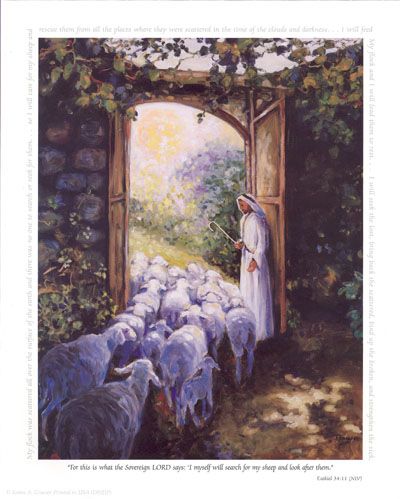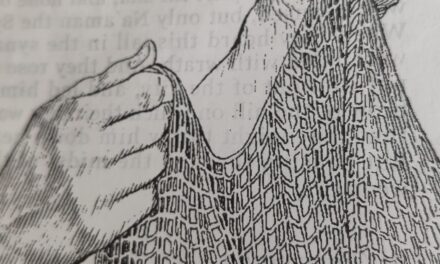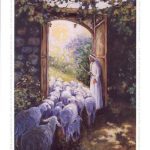The Gospel reflection for the Fourth Sunday of Easter reminds us of the symbolism of the Good Shepherd. The symbolism beyond the tension between hired hands and the good shepherd is still current today, and it explains the missional marks of Jesus’ sheep. Jesus Christ spells out what it means for Him to be our Good Shepherd and for us to be His sheep. The prominent distinctive marks of Jesus’s sheep start with the entry into the sheepfold by the door, through the death and resurrection of Jesus, that is, through Jesus’ blood. To be Christ’s sheep is to be received by Jesus as a gift from the Father: “My Father, who has given them to me, is greater than all, and no one is able to snatch them out of the Father’s hand.” (John 10:29).
Jesus sacrificially chooses to be identified with the picture of the Good Shepherd because of His sheep. God’s rebuke and warning for bad shepherds in the Old Testament climaxed with the prophecy of a Good Shepherd that is to come. In the New Testament, Jesus’ identification of Himself as the Good Shepherd gives hope to the lost sheep. Sheep in this context are not only ‘dependent creatures; singularly unintelligent, prone to wandering and unable to find their way to a shepherd.’ Because of our helplessness and tendency to wander and get lost as sheep, we need a Good Shepherd. The notion of good shepherding in the epistles resonates with those who would lead in the church.
Jesus Christ, in His role as the Good Shepherd, fulfils multiple roles for His sheep. He is their guide, their protector, their healer, and their shepherd. His sheep, like all living beings, require spiritual sustenance, healing, care, love, and mercy. Jesus Christ, the Good Shepherd, derives joy from witnessing His weak and suffering sheep finding their way towards spiritual healing. The story of the prodigal son (church) resonates with the lost and weak sheep finding their way back to the Good Shepherd.
Beloved, have you considered whether you are one of Jesus’ sheep? Do you possess the identifying missional marks of Jesus’ sheep? Jesus declared, “My sheep hear my voice, and I know them, and they follow me” (Jn. 10:27). To hear Jesus’ voice, His sheep must believe His Word and follow Him. Jesus further stated, “You do not believe because you are not among my sheep” (Jn. 10:26). To believe as Jesus’ sheep is to believe in His teaching and miracles. Even today, Jesus’ religious critics persist in disputing His teaching and miracles, going so far as to attribute His works to Satan (Mark 3:22).
There is a difference between faith and belief. A man or woman who refuses to believe cannot be convinced, no matter any level of debate or evidence provided. All the debate, evidence, and reason in the world would not make the slightest difference to someone committed to disbelief and pride. Jesus challenged the local religious leaders for never hearing the voice of God. Hence, they are rejecting Jesus and His message just because of their pride, position, and unwillingness. Indeed, information does not translate to transformation (Jn 5). The religious leaders’ stubbornness and foolishness were based on their refusal to follow and obey the truth. They do not want to understand, so they cannot (Jn 5:38-40; 7:17).
It is straightforward to be deaf to God’s voice, refusing to hear His voice because we have not surrendered our lives to Him as His sheep (Jn 10:1-6). Jesus’ voice is God’s voice, and if you do not hear and obey His voice, you are not yet part of His sheep (Jn 10:30). To hear the voice of Jesus and follow Him speaks of a direct, personal relationship and speaks of obedience to Him.
Jesus Christ, the Good Shepherd, cares. He cannot find peace until he finds the lost sheep. Jesus seeks the return and repentance of the sinful. He is not interested in the death of a sinner but that the sinner should come to repentance. In the Gospel of Mark, Jesus tells the Pharisees about the shepherd who leaves the 99 sheep to seek the lost one. Using Jesus’s words, all the people who sin are like lost sheep. Are you one of the lost sheep? Please, you need to return to Jesus as your Lord and Saviour.











Recent Comments